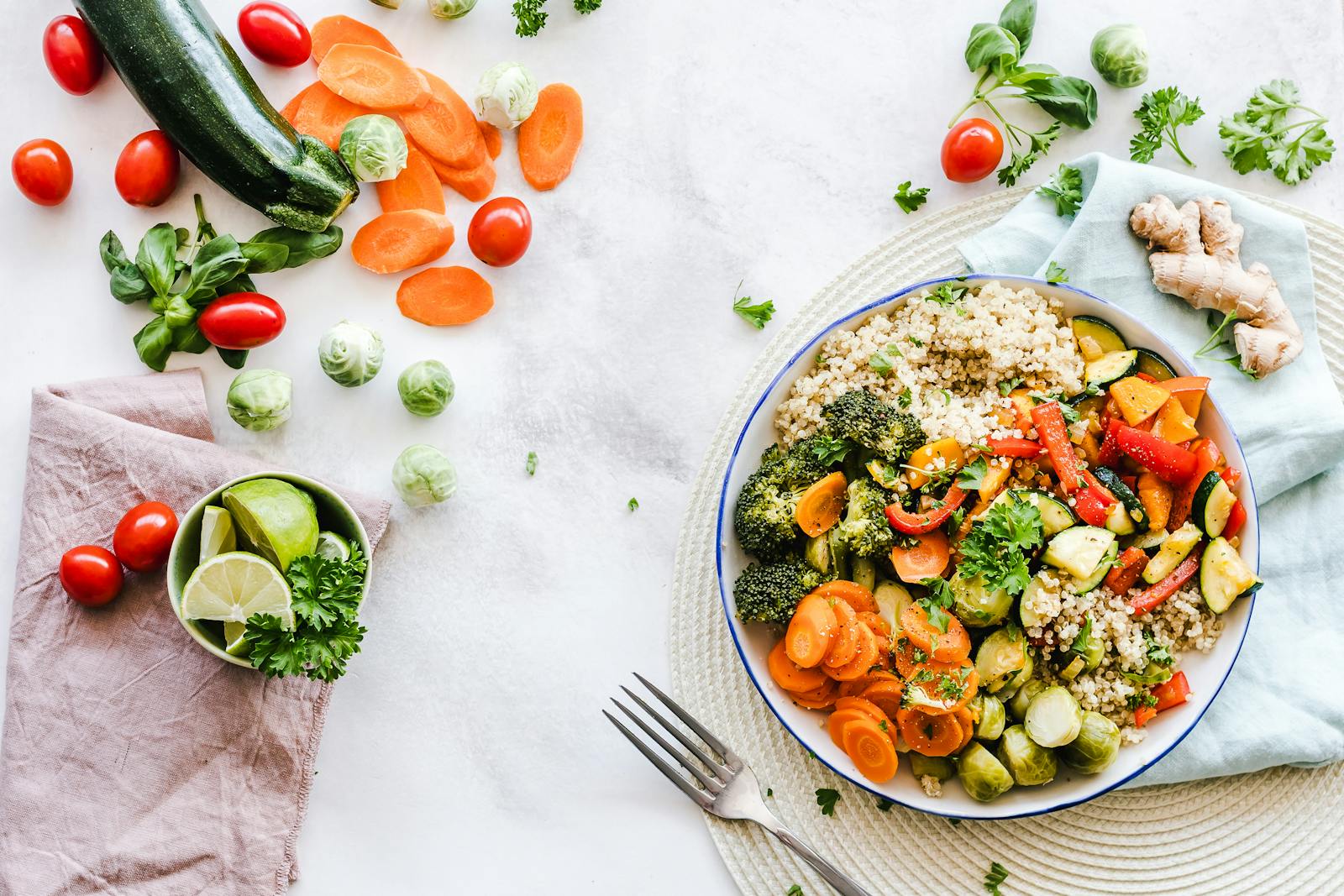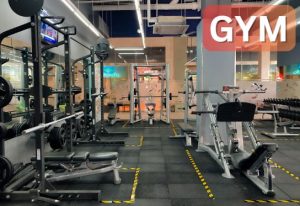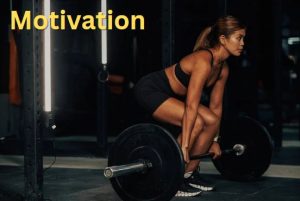
workout foods play a big role in getting the most out of your workouts, nutrition plays a critical role. By fueling your body with the right nutrients before and after exercise, you can help maximize your performance, speed up recovery, and achieve your fitness goals faster. In this article, we’ll explore the best foods to eat before and after exercise and the nutrients you need to power your workouts.
1- Workout Foods: Pre-workout Nutrition for Fueling Your Body for Performance
Absolutely, let’s delve deeper into the topic of pre-workout nutrition and the significance of certain foods in optimizing your workout performance.
- Oatmeal: Oatmeal is a staple pre-workout food due to its high content of complex carbohydrates. These carbohydrates are broken down gradually, providing a sustained release of glucose into the bloodstream. This slow release helps maintain steady energy levels throughout your workout, preventing abrupt energy crashes. Additionally, oatmeal contains fiber, which aids in digestion and helps you feel full, avoiding discomfort during exercise. You can consider topping your oatmeal with some fruits like berries for added vitamins and antioxidants.
- Bananas: Bananas are a popular choice among athletes and fitness enthusiasts because of their rich potassium content. Potassium is an electrolyte that plays a crucial role in maintaining proper muscle function and fluid balance in the body. During intense exercise, you lose electrolytes through sweat, and a deficiency in potassium can lead to muscle cramps and fatigue. Consuming a banana before your workout can help replenish potassium levels and support efficient muscle contractions.
- Greek Yogurt: Greek yogurt is not only delicious but also a great source of high-quality protein. Protein is essential for muscle repair and growth, making it an important component of your pre-workout meal. By consuming Greek yogurt before your workout, you provide your muscles with amino acids that can be readily used to fuel your exercise and aid in the recovery process afterward. Adding a drizzle of honey or some chopped nuts to your yogurt can add a touch of sweetness and healthy fats for sustained energy.
- Whole Grain Bread or Rice: Similar to oatmeal, whole grain bread or rice are excellent sources of complex carbohydrates. They provide the energy your muscles need for prolonged physical activity. These carbohydrates are stored in your muscles as glycogen, which serves as a readily available energy source during exercise. Including some lean protein sources like chicken or turkey along with your complex carbohydrates can create a balanced meal that supports muscle preservation and recovery.
- Nut Butter: Nut butter, such as peanut butter or almond butter, contain healthy fats and protein. The fats in nut butter are a concentrated source of energy, and the protein helps in muscle repair. Including a small amount of nut butter on whole grain toast or with banana slices can offer a mix of nutrients that keep you fueled and satisfied during your workout.
- Hydration: While not a food, staying hydrated is equally crucial for pre-workout preparation. Dehydration can lead to reduced exercise performance, decreased endurance, and impaired cognitive function. Drinking water before your workout ensures that you’re adequately hydrated, which supports overall bodily functions and helps maintain your energy levels.
2- workout foods: Post-workout Nutrition Optimizing Recovery and Results
After engaging in a demanding workout session, the body requires replenishment and nourishment to facilitate recovery and enhance the effects of your exercise efforts. Proper post-workout nutrition is essential for muscle repair, glycogen restoration, and overall wellness. Here are some key foods to consider incorporating into your post-workout meal:
Chicken: A protein-rich food, chicken is a cornerstone of post-workout nutrition. Protein plays a pivotal role in repairing and rebuilding muscle tissue, which can be subjected to microscopic damage during exercise. The amino acids in protein are the building blocks for muscle recovery and growth. Chicken, specifically lean cuts like chicken breast, provides high-quality protein without excessive amounts of saturated fats. By consuming chicken after your workout, you’re aiding your body in the recovery process, optimizing muscle repair, and fostering a favorable environment for muscle development.
Sweet Potatoes: The inclusion of sweet potatoes in your post-workout meal is a strategic choice owing to their composition of complex carbohydrates and dietary fiber. Complex carbohydrates serve as a primary source of energy for your body, and replenishing glycogen stores that were depleted during exercise is crucial for restoring energy levels. The dietary fiber content aids in digestion and helps regulate blood sugar levels. This combination of energy replenishment and digestive support positions sweet potatoes as an effective post-workout choice that fosters recovery and prepares you for your next session.
Spinach: Rich in vitamins, minerals, and antioxidants, spinach stands as a vital component of post-workout nutrition. The physical stress of exercise can lead to inflammation, and the nutrients in spinach, such as vitamins A, C, and K, as well as minerals like magnesium, can aid in reducing inflammation and supporting immune function. This helps your body recover more effectively and maintain overall health. Incorporating spinach into your post-workout meal can contribute to the holistic recovery process, ensuring that you’re not just repairing muscles but also supporting your body’s broader needs.
Additional Considerations:
- Protein Variations: While chicken is an excellent post-workout protein source, it’s important to note that there are alternative options for those who follow vegetarian or plant-based diets. Foods like tofu, tempeh, lentils, beans, and quinoa are rich in protein and can serve as viable alternatives for muscle recovery and growth.
- Hydration: Just as hydration plays a role in pre-workout preparation, it remains crucial post-workout. Rehydrating your body after exercise helps replenish fluids lost through sweat and supports the transport of nutrients to muscles for repair. Including water-rich foods like cucumbers, watermelon, and oranges can contribute to rehydration.
- Balanced Nutrition: While individual macronutrient needs can vary based on workout intensity, duration, and personal goals, a balanced post-workout meal typically combines protein, complex carbohydrates, and healthy fats. This synergy ensures that your body receives a well-rounded dose of nutrients to promote recovery and enhance results.
3- Nutrients for Workout Recovery: Supporting Your Body’s Needs
In addition to specific foods, there are certain nutrients that play a critical role in workout recovery. Here are some of the key nutrients to focus on:
- Protein: Essential for muscle repair and growth, protein should be a key component of your post-workout meal.
- Carbohydrates: Vital for replenishing energy stores, carbohydrates should be included in both your pre-and post-workout meals.
- Electrolytes: Key for maintaining proper fluid balance and preventing dehydration, electrolytes like sodium, potassium, and magnesium should be replenished after exercise.
4- Maximize Workout Benefits with Nutrition: Putting It All Together
By combining the right workout foods and nutrients, you can help maximize the benefits of your workout and achieve your fitness goals faster. Here’s an example of a pre-and post-workout meal that incorporates the best foods and nutrients for performance and recovery:
Pre-workout Meal:
- Oatmeal with sliced banana and Greek yogurt
- A glass of water with a pinch of sea salt
Post-workout Meal:
- Grilled chicken breast with roasted sweet potatoes and sautéed spinach
- Electrolyte-rich sports drink
Incorporating these key foods and nutrients into your pre-and post-workout meals can help you power your workouts and achieve your fitness goals faster. Try experimenting with different combinations to find what works best for you, and enjoy the benefits of optimal nutrition and performance.
Discover the Best workout foods to consume before and after your workout, whether you exercise at the gym or at home. Providing your muscles with the right fuel is crucial, and this video tutorial will teach you how to create the optimal pre-workout meal to increase energy and strength. Additionally, we’ll discuss the most effective post-workout meal for promoting muscle growth and fat loss. Tune in to gain valuable insights and take your workouts to the next level. watch the video here: video
Eating For Energy: Foods That Boost Your Stamina And Endurance
When it comes to working out, the foods you eat can play a critical role in your overall performance and recovery. The right combination of nutrients can help provide your body with the fuel it needs to power through a tough workout, while also aiding in the repair and growth of muscle tissue afterward.
Some great options for workout foods include complex carbohydrates like whole grains and sweet potatoes, which can provide sustained energy, as well as lean proteins like chicken and fish, which can help support muscle growth and repair. It’s also important to stay hydrated before, during, and after exercise, so be sure to drink plenty of water and consider adding in electrolyte-rich options like coconut water or sports drinks for longer or more intense workouts.
5- workout foods: Complex Carbohydrates
Complex carbohydrates are a type of carbohydrate that takes longer to break down in the body, providing sustained energy for the duration of your workout. Examples of complex carbohydrates include whole-grain bread, brown rice, quinoa, and oats. These foods provide a steady stream of glucose to the body, which can help improve endurance and delay the onset of fatigue during exercise.
6- Workout foods: Lean Proteins
Protein is essential for muscle growth and repair, making it an important part of any workout diet. Lean proteins like chicken, fish, tofu, and legumes provide the necessary amino acids to support muscle recovery and growth. Consuming protein before and after exercise can help reduce muscle damage, speed up recovery time, and improve overall performance.
7- Healthy Fats
Contrary to popular belief, not all fats are bad for you. In fact, healthy fats like nuts, seeds, avocado, and olive oil can provide sustained energy and help keep you feeling full during exercise. Additionally, they provide important nutrients like omega-3 fatty acids, which have been shown to reduce inflammation and improve recovery time after exercise.
8- Hydration
Staying hydrated is essential for optimal performance during exercise. Drinking plenty of water before, during, and after exercise can help prevent dehydration, improve endurance, and aid in the transport of nutrients throughout the body. Additionally, incorporating electrolyte-rich options like coconut water or sports drinks can help replace lost electrolytes during intense or prolonged workouts.
9- Timing is Everything
While consuming the right workout foods is important, when you eat them can be just as crucial. Eating a meal too close to exercise can lead to digestive issues and discomfort during exercise, while not eating enough beforehand can lead to fatigue and decreased performance. As a general rule of thumb, aim to eat a meal containing carbohydrates and protein at least 2-3 hours before exercise to allow for proper digestion.
For shorter or more intense workouts, a small snack containing carbohydrates and a little protein consumed 30 minutes to an hour before exercise can help provide the necessary energy and nutrients for optimal performance.

Conclusion
In conclusion, incorporating the right workout foods into your workout diet can help provide the necessary nutrients and energy to improve performance and support recovery. Consuming complex carbohydrates, lean proteins, healthy fats, and staying hydrated can help optimize your workout routine and help you achieve your fitness goals. Remember to also pay attention to timing and listen to your body, as everyone’s nutritional needs can vary based on factors like age, sex, and exercise intensity.
In addition to macronutrients (carbohydrates, protein, and fat), micronutrients like vitamins and minerals are also important for optimal performance and recovery. Foods like leafy greens, berries, and citrus fruits are rich in antioxidants and can help reduce inflammation and support immune function. Additionally, incorporating foods like dairy, dark leafy greens, and fortified cereals can help ensure adequate intake of calcium and vitamin D, which are important for bone health.




